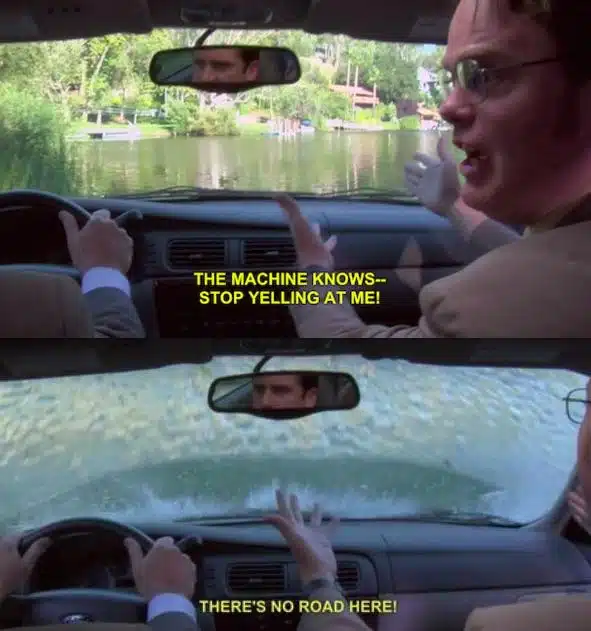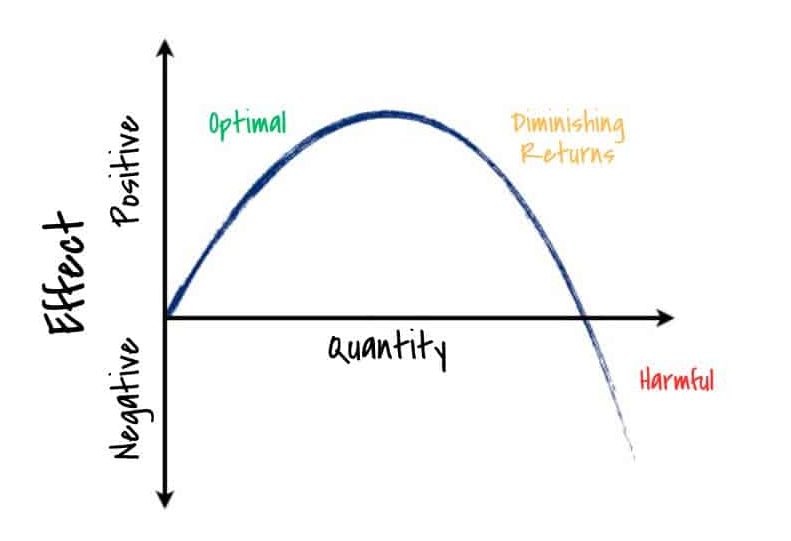We love sayings. They simplify big concepts like success and happiness into bite sized, easy to consume morsels.
However, oversimplification can lead to confusion and misinterpretation. This article aims to dissect some of the common sayings in business and success that I believe are half true, oversimplified or flat out false.
Trigger Warning
Some of my opinions on these sayings are "loud," and might irritate some folks. These sayings all have good intentions and I don't want to belittle people who have followed them or repeat them. I just wanted to dive a little deeper into all of them.
After all, as George Box famously wrote, "All models are wrong, some are useful."
"Winners never quit" - Unknown Origin
Verdict: False
Winners quit all the time. They just know how to do it and what things are worth never conceding.
I spent 7 years earning my degree in economics. Somehow, understanding the phrase "don't cry over spilled milk," (an analogy to explain the concept of sunk costs) ended up being one of the most impactful things I learned.
Many people fall into the sunk cost fallacy and feel that quitting isn't an option since they've already invested too much.
- I cant quit (x) I have spent too many hours working on it.
- I can't quit (x) I've worked to hard on it.
- I can't quit (x) I've spent too much money on it.
Replace X with something futile like owning a Blockbuster franchise and this logic falls apart. Similarly, for those considering franchising, having a robust franchise business plan is crucial to ensure that your passion aligns with a viable business model.
"I can't quit running this store, I've worked to hard on it." It doesn't matter. That time, money, effort is gone (sunk) and isn't coming back no matter what you do.
Quitting is an art form. We are cursed with the limitations of time and incomplete information. We make decisions without knowing all information and therefore, quitting regularly becomes necessary to protect our time.
Michael Scott driving into the pond because he refused to accept that the navigation was giving him bad information is the funniest example of this sort of failure to concede I could think of.

Knowing when to quit allows us to regroup and refocus on things that are more meaningful.
I've written at length about this in my blog post "The Ultimate Guide to Quitting."
Better: "Winners never stop chasing success but know when to adapt and pivot when they identify that something is no longer optimal."
"If you want to achieve excellence, you can get there today. As of this second, quit doing less-than-excellent work." -Thomas J. Watson
Verdict: Half truth
There are several variations of this such as "how you do the little things I'd how you do the big things" that are equally misguided.
Excellence is great but not all tasks are created equal. Some don't merit excellence.
Doing something that is meaningless well doesn't make it less meaningless.
Also, we have limited time and energy. If doing a task with half the intensity gets the same result, why exert more effort?
A saying that is far more valuable and contradicts this one is "perfection is the enemy of done."
It pains me to think about the countless number of brilliant inventions, works of art etc. that we will never get the chance to experience because the creator pursued perfection at the cost of ever completing the project.
Read about the Minimum Effective Dose to better understand why this saying is nonsensical and why doing the minimum is optimal for certain tasks.

Improved: "Find what's most important and do it with excellence. Some things don't deserve your strongest efforts or attention. At scale, do err on the side of doing things to the best of your ability to adopt a standard of excellence, but understand the diminishing returns of effort on specific tasks."
"Fail Fast" - Unknown Origin
Verdict: Misleading
Failing is inevitable and learning from our mistakes and "failing forward" is great. Resilience is a common shared trait of the most successful people.
However....
We need to stop making failure so acceptable.
There are an infinite number of ways to fail at something and far fewer ways to succeed.

We learn far more from our successes than we do from our failures. Some failures get us no closer to our end goal.
Being too willing to accept failure too quickly can lead us to mental laziness.
"Let's just do it, if it doesn't work we'll learn from it."
If we had infinite time, this would be fine, but we don't. Rushing into something because we view failure too positively will take away time from other things.
Also, failure is supposed to sting. It drives us to improve. Becoming too desensitized to it would be like removing your nerves and not realizing your hand is burning on a hot stovetop.
Improved: "Don't be afraid to fail but work hard to succeed. Learn from your failures but don't accept them too soon."
"Whether you think you can or you think you can't, you're right." -Henry Ford
Verdict: Half truth
I love the thought process behind this one, but it's also too generous.
There are limitations to what we can and can't do. That sounds wildly negative, but it shouldn't be.
We all have unique traits that make us better fit for certain things.
Improved: "Mindset and positive talk will ensure you achieve the highest level of success possible. Faith in yourself pays off at scale, but not always in every situation. However, if you regularly decide you can't do things, you're destroying your chances of accomplishing anything astounding."
"Do what you love and you'll never work a day in your life" - Unknown Origin
Verdict: False
It's sad to think about how many people have turned their passions into jobs they hate.
I highly recommend reading the book The E-Myth Revisited: Why Most Small Businesses Don't Work and What to Do About It by Michael E. Gerber. This book has surely saved countless numbers of people from creating failed businesses that also destroy their passions.
Improved: "Love the process of your work but understand some things you love aren't a good fit for monetizing."
"There's no harm in asking." or "There's no such thing as a dumb question." - Unknown Origin
Verdict: False
Teachers are hard wired to follow the phrase, “I have a dumb question,” with “there’s no such thing as a dumb question! Go ahead.”
It’s as natural for them as lifting your hand off a hot stove or
For good reason, most of us have also hardwired this belief into our heads. No question is too embarrassing, ignorant or foolish to ask.
The phrase has good intentions and has most likely done more good than harm. However, it is not an absolute truth. In fact, dumb questions can cost you your job, business or relationships.
Improved: "Never be afraid to ask, but that isn't a free pass to not first consider what you're asking."
"Cheaters never prosper" - Unknown Origin
Verdict: False
Barry Bonds has a net worth of approximately $100 million. He is one of the most notorious cheaters of all time, shattering every once meaningful major league baseball home run record while injecting "the clear" into his booty for the second half of his career.

The idea that cheaters never win is a fantasy that plays out well in Disney movies but less often in real life.
Cheating is an option in almost everything.
This is part of why people who don't cheat are respected. If the only reason you aren't cheating is because you don't think it will work, is that truly noble?
Improved: "Cheaters often prosper, but you're better than that. Winning the right way feels better and is more sustainable."
"Practice makes perfect" - Unknown Origin
Verdict: Half truth
Practicing the right things in the correct way makes perfect. Repetitions alone don't create improvement if we're practicing something incorrectly.
Also, this is depressing, but for some things, we can't out practice our natural limitations. I can't practice my way to being an olympic level high jumper, but I can practice to make myself as good at it as possible.
Improved: "Practice done correctly gets you closer to perfection."
"The secret of success is to do the common thing uncommonly well." -John D. Rockefeller Jr.
Verdict: Oversimplification
We are so dramatic, aren't we?
So many superlatives. There is no "secret" to success. This saying is from someone who did succeed with this method (delivering steel better than anyone else) but it's far from the secret to success in all businesses.
Improved: "Sometimes, you can find success just by doing the common things uncommonly well."

